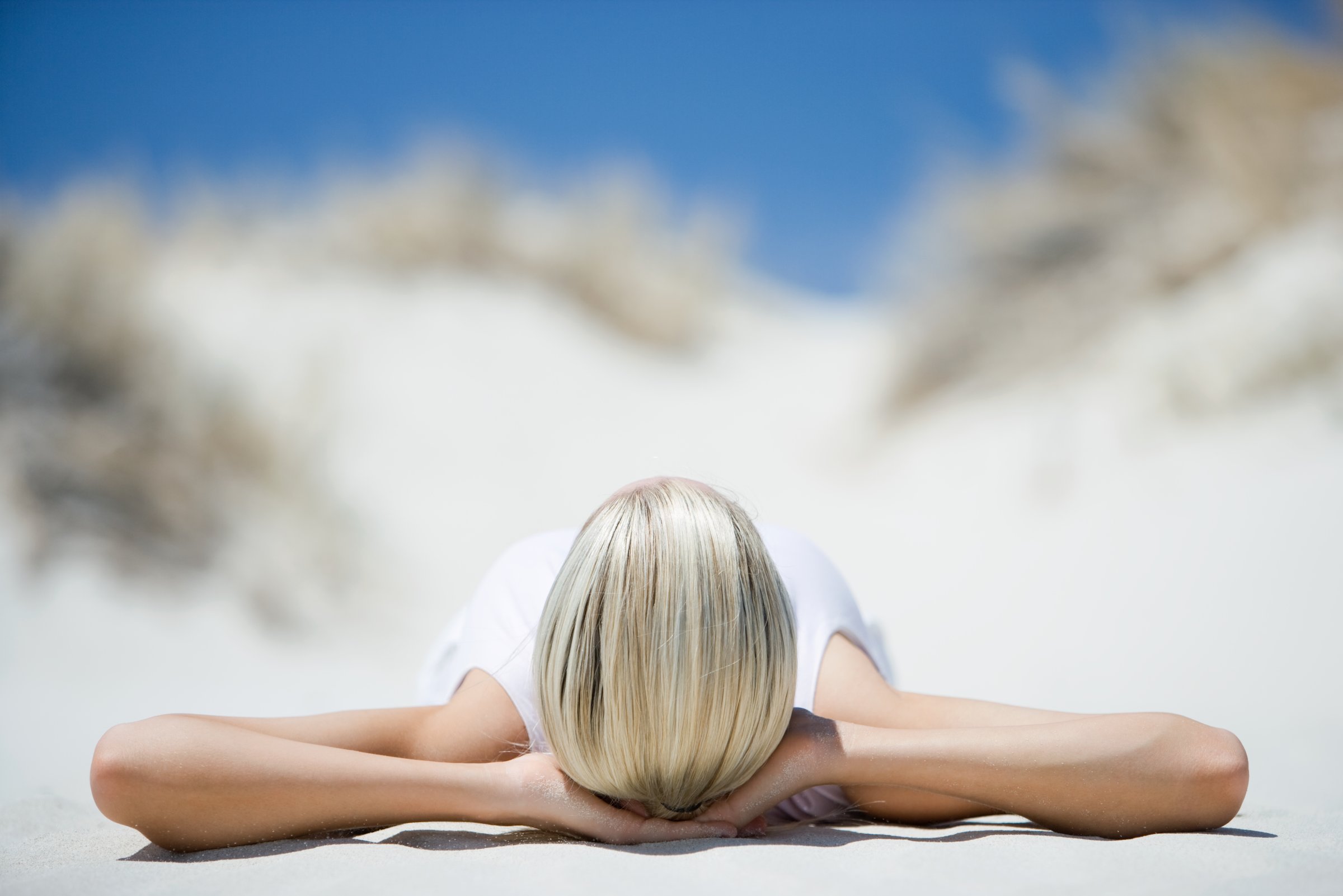
A nap can be a beautiful thing. It can perk you up, make brain fog fade and, according to recent research, it can even fend off colds and improve your cardiovascular health.
However, if you find yourself tossing and turning or waking up from naps feeling even sleepier than when your head hit the pillow, you’re probably selling nap time short. Here are six tips—straight from sleep-medicine physicians—to help you take the perfect nap.
1. Set your alarm for about 20 minutes
“For most people, 20 to 25 minutes of napping is perfect,” says board-certified sleep medicine physician Dr. W. Christopher Winter, owner of Charlottesville Neurology and Sleep Medicine in Virginia. It’s enough time to help you wake up refreshed but not so much that you fall into the deeper stages of sleep. When you attempt to wake up in the middle of deep sleep, you wake up feeling groggy, thanks to a phenomenon called “sleep inertia.” “The brain thinks you are hunkered down for the night and intends to stay that way,” he says.
Sound like too short of a nap for your tastes? Unless you are sleep-deprived due to your work or social schedule and are trying to make up for lost Zzzs, craving a longer nap may be a signal that something is wrong with the duration or quality of your sleep, says Dr. Omar Burschtin, director of the Integrative Sleep Medicine Center with the Mount Sinai Health System in New York City. Either way, if you decide to snooze for more than 30 minutes, try napping with a sleep tracker that will wake you up when you hit your lightest sleep stage in a specified time interval. Sleep Cycle or Beddit are both good options.
2. Schedule your nap early in the day
Just like with your nighttime sleep schedule, consistency with daytime naps is critical, says Winter. By napping at the same time every day—or just on any days you decide to nap—you’ll help train your body to know when it’s naptime. When it comes to choosing a time, Winter recommends napping in the late morning or early afternoon. That way, you minimize the likelihood of your nap interfering with your ability to fall asleep at night.
3. Shut out the light
You know that late-night light from gadgets can interfere with sleep onset and quality at bedtime, and light from the sun (and gadgets) can also interfere with your sleep onset and quality during the day, says Burschtin. Just remember that every person’s sensitivity to light is unique. For some people, turning off Netflix and drawing the blinds might be enough to help you sleep easily, while others may benefit from a sleep mask, he says.
4. Crawl into bed
Napping in your bed (remember: your bed should only be for sleep and sex) can help cut down on time spent trying to fall asleep, while also removing you from anything else that’s going on in the living room, says Winter. But if there’s not a bed where you’re trying to nap—like in your office or even a car—at least get as horizontal as you can. The one caveat is if you have diagnosed sleep apnea and don’t have access to your CPAP machine. If that’s you, sleeping in a pseudo vertical or reclined position can help you breathe and sleep easier, says Burschtin.
5. Turn down the volume
Everyone knows that a boisterous environment can keep you from falling asleep or wake you up mid-nap, but sleep monitors show that noise can disturb your slumber even if you don’t realize it, says Burschtin. So if you aren’t able to cut down on noise in your sleep environment, try earplugs. If you find them uncomfortable, Winter recommends a white noise machine. When ruckus wakes you, it’s not the actual sound that’s at fault, but rather the sudden change in sound volume and frequency. White noise machines mask those changes.
6. Sniff lavender
In one study in Perceptual and Motor Skills, when men and women fell asleep to the smell of lavender, they slept better and woke up feeling more alert. And if you smell lavender every time you nap or sleep for the night, your brain will quickly connect the dots and know that it’s time to snooze when you get a whiff of the fragrance, says Winter. “Smell is one of the scents that our brains most strongly tie to memory. Take advantage of that to sleep better.”
More Must-Reads From TIME
- The 100 Most Influential People of 2024
- Coco Gauff Is Playing for Herself Now
- Scenes From Pro-Palestinian Encampments Across U.S. Universities
- 6 Compliments That Land Every Time
- If You're Dating Right Now , You're Brave: Column
- The AI That Could Heal a Divided Internet
- Fallout Is a Brilliant Model for the Future of Video Game Adaptations
- Want Weekly Recs on What to Watch, Read, and More? Sign Up for Worth Your Time
Contact us at letters@time.com